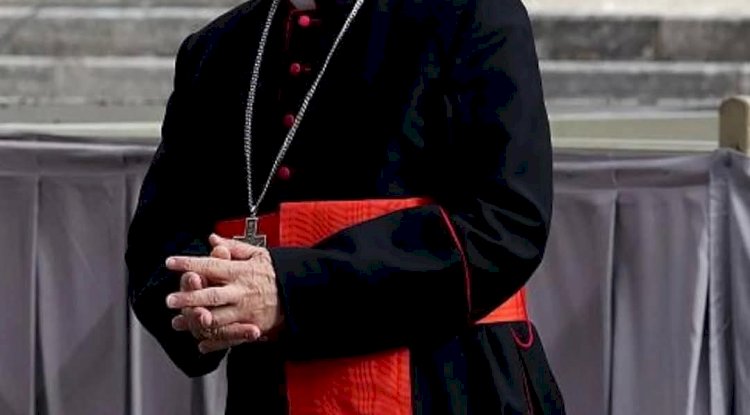Pope Leo XIV Is Augustinian: Understanding Augustinianism

Benedict XVI often prayed a phrase that he’d noticed in Augustine’s Confessions: “da quod iubes, et iube quod vis,” “O give what you command, Lord, and command what you will.” (Bk. X, xxix) Worth reciting daily, because it’s both short and rich. And typical of how great thinkers can say much in a few words (multum in parvo, as the old Romans put it). Surprisingly, Benedict/Ratzinger was sometimes criticized for using those words, as Augustine himself has been. The context – Augustine was praying for continence, which the dictionary defines as “self-restraint, especially with regard to sex” – is clearly part of it. But there’s doubtless, more – a lot more.
We’ve been laboring under a misconception for decades in the Church. Many people believe that God would never be so undemocratic as to “command” anything. Ironically, those very same people often believe that He does very much command ordaining women, accepting LGBT ideology, Communion for the divorced and remarried, etc. In this context, another pithy phrase of Augustine’s is often cited – “Love and do what you will” (Serm. 110) – though his name is usually not attached to this quite modern-seeming sentiment.
But Augustine never said what people think he said in that sermon. Right before the famous phrase, he draws some clear distinctions:
we find people made fierce by love; and by wickedness made seductively gentle. A father beats a boy, while a kidnapper caresses him. Offered a choice between blows and caresses, who would not choose the caresses and avoid the blows? But when you consider the people who give them you realize that it is love that beats, wickedness that caresses. This is what I insist upon: human actions can only be understood by their root in love. All kinds of actions might appear good without proceeding from the root of love. Remember, thorns also have flowers: some actions seem truly savage, but are done for the sake of discipline motivated by love.
We all know this in theory – especially when observing other people – and ignore it in practice when it clashes with some cherished goal of our own.
For the mature Augustine – i.e., the Christian thinker after he freed himself from the confusions of Manicheanism and his personal lusts – everything is moved by love. Good loves or bad loves, but loves all the same because the Creator created the world out of a selfless love. And everything he made is worthy of our love, properly understood. But there’s the difficulty. Since the Fall, our loves are disordered. So much so that Augustine explains evil itself as a lack of a proper love in the right place, at the right time, to the proper degree. Love rightly ordered lifts us up. Wrongly ordered love weighs us down.
As he puts it in another celebrated passage from Confessions:
All things pressed by their own weight go towards their proper places. Oil poured in the bottom of the water, is raised above it: water poured upon oil, sinks to the bottom of the oil. They are driven by their own weights, to seek their own places. Things a little out of their places become unquiet: put them in their order again, and they are quieted. My weight is my love [pondus meum amor meus]: by that am I carried, whithersoever I be carried. (Bk. XIII, ix)

I have scandalized certain friends who are overly attached to the Thomistic elements in Dante’s Commedia (which are very much there and very important) by claiming that the Augustinian concept of the order of loves is what gives us a more fundamental and global image of sinners, penitents, and saints spread out across Dante’s cosmos. This is undeniable and entirely understandable because Augustine was a deep influence on both St. Thomas and Dante. And should be on us as well.
Because Augustine also helps us to understand how it is that we are made in the image and likeness of Love Himself. In On the Trinity, he compares the Three Persons of the Trinity – Father, Son, and Holy Spirit – with three powers in the human person: memory, understanding, and will. It’s an analogy, of course, not an exact equivalence. None of the Christian mysteries can be wholly explained, only partly grasped by their similitude to things in our world.
But this comparison not only gives us some sense of our being in the ‘image and likeness.” It also suggests how it is that the three “persons” in the Trinity can be three and yet one: we understand that memory, understanding, and will can be distinguished and yet united in a human person.
He puts this, which might seem abstruse, quite poetically:
Now this triad of memory, understanding and will, are not three lives, but one; not three minds but one. It follows that they are not three substances but one substance. . . .Therefore, since all are covered by one another, singly and as wholes, the whole of each is equal to the whole of each and the whole of each to the whole together. And these three constitute one thing, one life, one mind, one essence. (De Trinitate, Bk. X. xviii)
Our new Pope Leo XIV was deeply formed in this tradition, as is apparent in his choice of a phrase from Augustine’s Sermon on Psalm 127 as the motto for his coat of arms: In illo Uno unum (“In that One we are one”). Among the many encouraging signs that he’s already given as pope, this one clearly emphasizes that much as we seek to find order, meaning, truth, and peace as individuals and in our common lives together, no merely human scheme – no science, psychology, self-help regime, politics, economics, diplomacy, or cultural renewal – will give us what only God Himself can give. That’s exactly what our sad and confused times most need to hear.
What's Your Reaction?














